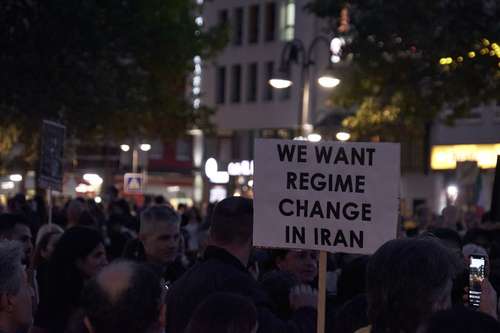The recent verdict in the forced labor case involving a prominent Orgasmic Meditation company has sent shockwaves throughout the wellness community. With disbelief and concern growing among both supporters and critics, many are now questioning the true cost of practices that promise spiritual benefits. How did this situation spiral out of control, and what does it mean for the future of alternative wellness practices?
Reports indicate that executives from OneTaste, a company known for its unconventional approach to meditation and sexual wellness, have been convicted of forced labor. Allegations suggest that staff were coerced into long working hours and were even pressured to participate in sexual activities under the guise of achieving spiritual enlightenment. For many, the verdict serves as a stern reminder that exploitative practices can be found even within industries that market themselves as purveyors of healing and inner peace.
The Scandal Unfolds
This section delves into how the scandal erupted and the sequence of events leading up to the trial. The revelations have uncovered a disturbing picture of manipulation, exploitation, and systemic abuse within the company.
Details emerged from testimonies during the trial that paint a grim picture of what employees endured. Many staff members described a work environment where promises of transformative meditation practices were used as veils for labor exploitation. They reported feeling compelled to perform tasks that extended far beyond their job descriptions, often under duress. The once-respected meditation practice had morphed into a tool for corporate crime, driven by those in high positions. It sounds almost too surreal, doesn’t it? The prospect that those who preach enlightenment could be engaging in such dark practices is both ironic and tragic.
The scandal, which has dominated legal news recently, reveals how careful we need to be when promises of personal growth and wellness come with hidden strings attached. In a world increasingly driven by the pursuit of spiritual enlightenment, one has to wonder: where is the line between genuine practice and exploitation?
Forced Labor Accusations in Detail
In this section, we explore the forced labor allegations that led to the conviction and understand the fundamental issues that made such abuse possible within the organization. What factors contributed to the leaders' ability to manipulate their employees so effectively?
The forced labor accusations were not isolated claims; they formed a pattern that the court found hard to ignore. Employees testified about grueling work hours and a lack of conventional compensation in exchange for promised spiritual rewards. Several sources indicated that the company used its meditation practice as a leverage to silence dissent and secure compliance.
Many employees described feeling trapped by a mix of hope and desperation. They entered the company with aspirations of personal growth and holistic success, only to find themselves caught in a cycle of exploitation. The combination of intense psychological pressure and physical demands blurred the boundaries of voluntary work, eventually tipping into a realm of forced labor. Such outcomes have left many questioning the ethics of such practices, shaking trust in both the leadership and the very concept of Orgasmic Meditation.
One might say the company's promises were nothing more than an illusion—an enticing shimmer that hid a much darker reality behind it. The sentencing of the leaders convicted in this forced labor case underscores the harsh truth about corporate scams that prey on vulnerable individuals seeking personal transformation.
The Legal Process and Trial Outcome
This part of the article explains how the legal proceedings unfolded and provides insights into the trial outcome that shocked many observers. The path to conviction was fraught with challenges and legal intricacies.
Throughout the trial, evidence was presented that clearly outlined a pattern of coercion and exploitation. The courtroom became a stage where former employees recounted their experiences, painting a disturbing narrative of abuse behind the polished marketing of a meditation company. The jury’s decision to convict the company leaders was fueled by mountains of testimony and substantial supporting evidence.
The legal case drew significant attention from media outlets and legal analysts alike. Many expressed that the trial outcome set a precedent for how forced labor cases, particularly those involving non-traditional work environments, are handled. The intense scrutiny highlighted the need for more robust regulations and safeguards in industries that operate on unorthodox business models. Not only did it expose the rampant exploitation within the organization, but it also sent a clear message: unethical behavior within the realm of sexual wellness and meditation practices will be met with serious legal consequences.
Critics of the wellness industry have been quick to point out that the trial outcome forces a necessary reckoning about the responsibilities of those at the helm of such movements. When a legal verdict reveals a hidden dark side of what appears to be an empowering experience, it reminds all stakeholders that ethical boundaries must be respected, no matter the industry.
Lessons for the Wellness Industry
Let's take a moment to examine what this case means for the wellness industry and similar meditation practices. The conviction raises important questions about how many other companies might be operating behind the scenes with little oversight.
This scandal should serve as an urgent wake-up call for anyone involved in the wellness space. For years, many have viewed Orgasmic Meditation as an innovative, if unconventional, method for attaining mindfulness and personal growth. But now, with the forced labor case coming to light, even dedicated practitioners are forced to reassess their trust in such systems.
The leaders convicted in this company scandal have not only tarnished their own reputations but have also cast a long shadow over the broader meditation community. It’s a classic case of the wolf in sheep’s clothing—a scenario where appealing promises conceal sinister practices. Many supporters of alternative healing now face a dilemma: Can one separate the genuine benefits of meditation from the unethical actions of those who exploit it?
Some industry veterans argue that this case could prompt much-needed reforms and tighter scrutiny within similar organizations, ensuring that employee exploitation is recognized and eliminated early. Meanwhile, those who had once seen the practice as a beacon of enlightenment are now forced to reevaluate their beliefs in light of the harsh legal truths revealed by the trial outcome.
Looking Forward: Redefining Ethics in Alternative Wellness
In wrapping up, we now focus on what changes might be on the horizon for the alternative wellness industry following this significant legal case. The outcome of the trial proves that justice can prevail, even in the darkest corners of cult-like corporate environments.
The forced labor case against these meditation leaders will undoubtedly become a reference point in discussions about ethics and responsibility in alternative wellness practices. It's a moment for reflection on how easily ideology can be repurposed for exploitation and how vital it is to establish clear, transparent standards in every industry.
As consumers, many of us are left asking: How do we discern genuine spiritual practice from manipulative tactics? This question is more relevant than ever, and the legal community’s actions in this case provide a solid foundation for a safer, more ethical future in the wellness culture. We can only hope that the lessons learned here will inspire legislative changes and more vigilant oversight, safeguarding both employees and seekers of true enlightenment from falling prey to unethical behavior.
Ultimately, the forced labor conviction stands as a powerful reminder that no matter how enticing the promise of meditation may be, ethical conduct must come first. This controversy casts a long shadow, but it also lights the way for a reformed, transparent industry where respect for human dignity is not optional but essential. The journey towards ethical wellness might be long, but at least now, the path is clearer.




